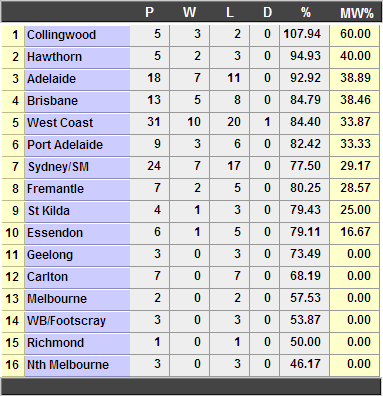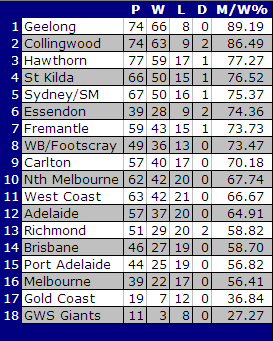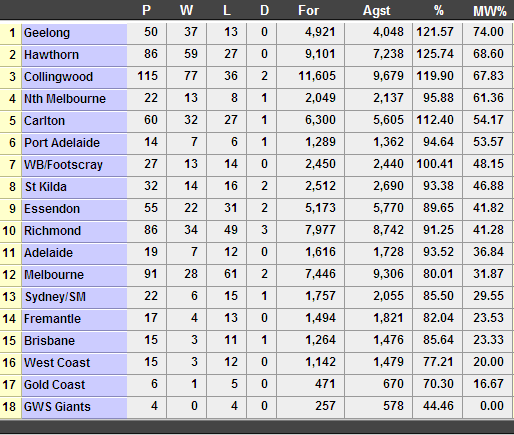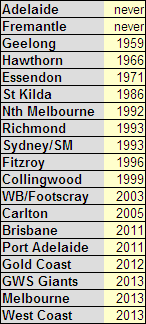As above, but for goals:
Age|Goals|Player(s)
\15yo|8|Tim Watson
\16yo|22|Keith Bromage, Mick Maguire
\17yo|52|Des Fothergill
\18yo|77|Tony Lockett
\19yo|98|John Longmire
\20yo|100|John Coleman
\21yo|141|Bob Pratt
\22yo|125|Peter Hudson
\23yo|133|Peter McKenna
\24yo|150|Peter McKenna
\25yo|150|Peter Hudson
\26yo|132|Tony Lockett
\27yo|146|Jason Dunstall
\28yo|122|Jason Dunstall
\29yo|110|Tony Lockett
\30yo|121|Tony Lockett
\31yo|124|Gary Ablett snr
\32yo|128|Gary Ablett snr
\33yo|123|Gary Ablett snr
\34yo|79|Alastair Lynch
\35yo|69|Gordon Coventry
\36yo|37|Kevin Bartlett, Tom Fitzmaurice
\37yo|14|Craig Bradley
\38yo|7|Craig Bradley
\39yo|3|Jack Leith
\40yo|-|-
\41yo|-|-
\42yo|1|Vic Cumberland
\15yo|8|Tim Watson
\16yo|22|Keith Bromage, Mick Maguire
\17yo|52|Des Fothergill
\18yo|77|Tony Lockett
\19yo|98|John Longmire
\20yo|100|John Coleman
\21yo|141|Bob Pratt
\22yo|125|Peter Hudson
\23yo|133|Peter McKenna
\24yo|150|Peter McKenna
\25yo|150|Peter Hudson
\26yo|132|Tony Lockett
\27yo|146|Jason Dunstall
\28yo|122|Jason Dunstall
\29yo|110|Tony Lockett
\30yo|121|Tony Lockett
\31yo|124|Gary Ablett snr
\32yo|128|Gary Ablett snr
\33yo|123|Gary Ablett snr
\34yo|79|Alastair Lynch
\35yo|69|Gordon Coventry
\36yo|37|Kevin Bartlett, Tom Fitzmaurice
\37yo|14|Craig Bradley
\38yo|7|Craig Bradley
\39yo|3|Jack Leith
\40yo|-|-
\41yo|-|-
\42yo|1|Vic Cumberland








